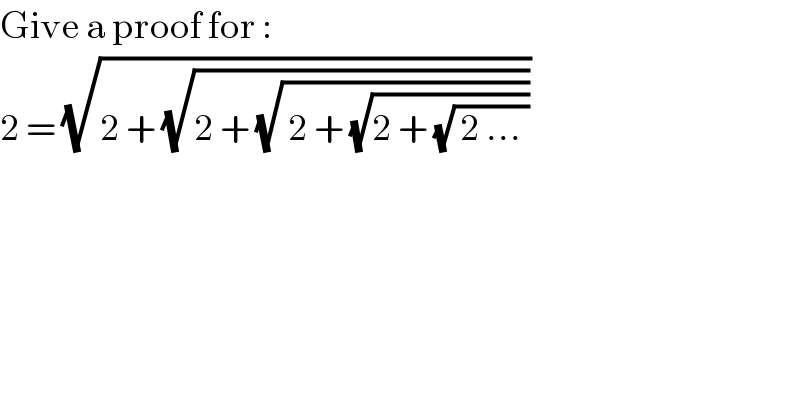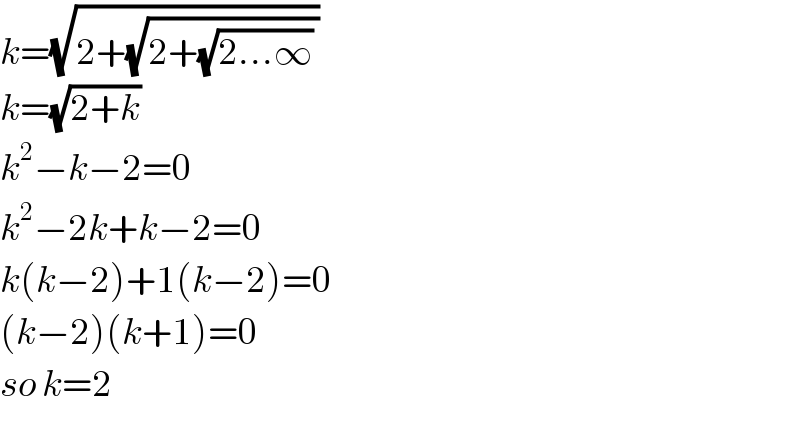
Question and Answers Forum
Question Number 49116 by hassentimol last updated on 03/Dec/18

Commented by maxmathsup by imad last updated on 03/Dec/18
![let u_(n+1) =(√(2+u_n )) with n≥0 and u_o =(√2) ⇒u_(n+1) =f(u_n ) with f(x)=(√(2+x)) we prove by recurrence that u_n >0 we have for x>0 f^′ (x)=(1/(2(√(2+x))))>0 so f is increasing on [0,+∞[ let w(x)=x−f(x) ⇒ w^′ (x)=1−f^′ (x)=1−(1/(2(√(2+x)))) =((2(√(2+x))−1)/(2(√(2+x)))) >0 ⇒w is increasing on [0,+∞[ we have w(1) =1−f(1)=1−(√3)<0 w(3)=3−f(3)=3−(√5)>0 ⇒ ∃! x_0 ∈]1,3[ / w(x_0 )=0 we verify that x_0 =2 if l=lim_(n→+∞) u_n we get f(l)=l ⇒ l =x_0 =2 .](Q49146.png)
Commented by hassentimol last updated on 10/Dec/18

Answered by tanmay.chaudhury50@gmail.com last updated on 03/Dec/18

